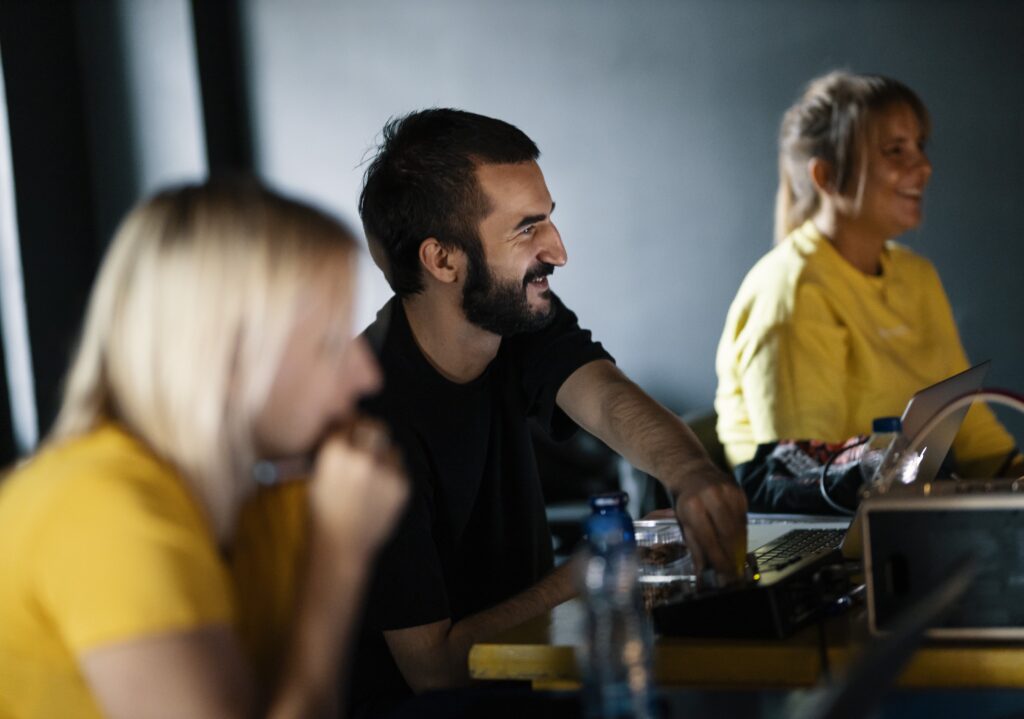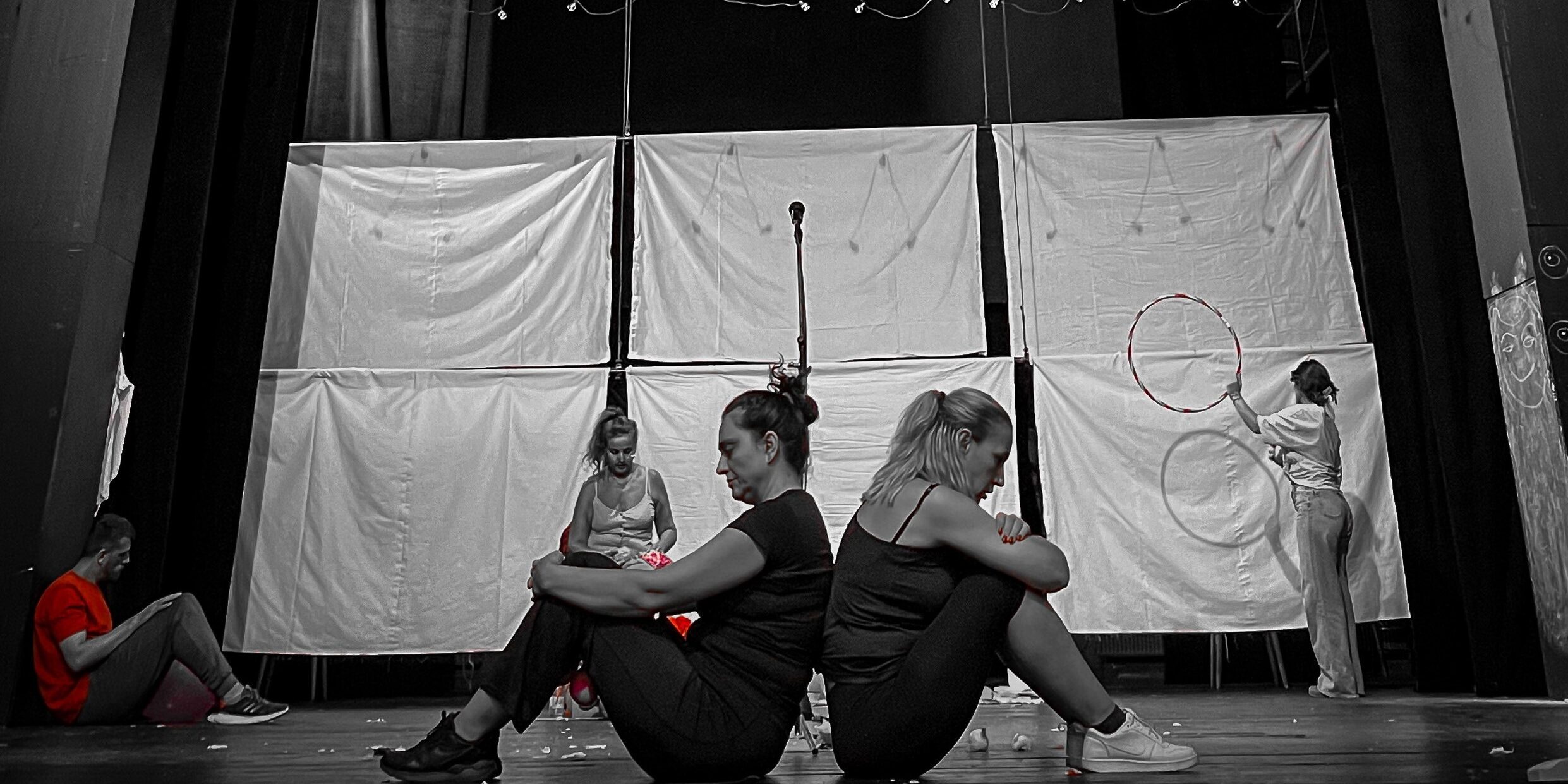In 1999, 15 members of the Bogujevci family were massacred in their garden in Kosovo. Nick Awde discusses artistic responsibility and bearing witness with the creative team behind a new cross-cultural production exploring their story.
The atrocities of war demand time for their stories to be revealed. It can take a lifetime for survivors to share what they have suffered, a process that sees them give society permission to piece the truth together, testimony by testimony. It’s a process that post-conflict society does not always support, preferring to focus on rebuilding new futures. But without testimony to remind us, society forgets.
The decision to step forward and bear witness is not easy. Aside from the horror of revisiting their trauma, survivors can also choose not to inform the next generation, believing it distracts from the chance of a new future. Many try to forget. How the rest of us share those stories is also not easy, especially if the perpetrators are still around, unpunished and unaccountable.
Books, exhibitions, documentaries and films are tried and tested ways to add to, amend, even challenge the record of society’s accepted narrative, but theatre is the medium that gives the audience a living connection to memory, storytelling in real time, its myriad of techniques helping to find the most convincing way to mix ‘entertainment’ with testimony in order to take us by the hand, sometimes literally, on the survivor’s journey.
Such a piece of theatre is The Shadow Garden, inspired by the witness of Saranda, Jehona and Fatos Bogujevci, survivors of the massacre of 15 family members in their garden in Podujeva in 1999. Created by an English writer, a Polish director and a Kosovan creative associate and ensemble, the play makes powerful use of multimedia from Irish video/lighting designer Al Orange, intertwined with the musical soundscape of Kosovan composer Tomor Kuçi.
The process of bringing The Shadow Garden to its premiere at the City Theater of Gjilan has been a series of journeys, some parallel, some joined, guided by constant questioning of artistic responsibility and the idea of truth in theatre, which isn’t the same thing when faced with the facts of real life, because real-life stories have consequences beyond the stage, because how can a performer be ‘true’ when the person they are personifying is in the audience?
The creative timeline begins when writer Sarah Hehir started talking to the Bogujevci family in 2018. She says that “there was less awareness in general about whose right it should be to tell stories, but this has rightly changed since then, because world attitudes have been changing. It’s a discussion that should be in your mind all the time and we certainly addressed it. What Jehona said in real life is now a motif throughout the play: ‘We were meant to live and we were meant to tell our story.’ This seems to be what drives the family and they’re very open for their story to be told in different ways.”
It was a decade earlier, in 2009, that actor Aurita Agushi first met Saranda: “I knew her story, because during the war I was in Kosovo and I know the horror that happened here. But when you actually meet the person who survived and experienced this in person, it’s completely different. And then as an actor, when you have to be that person in character on stage it’s a far bigger responsibility than when you play some character that lots of actors have played before you.
“Even in rehearsals when we got to the part where Saranda and her cousins give their testimony to the tribunal in Belgrade, it was very emotional for me. I was struggling to say my lines, because I was thinking that she’s going to be there in the audience while I’m doing this on the night. I’m going to impersonate her, if I can put it this way, and it’s not easy because, as the script says, war is like a coat that you’re going to wear all of your life.”
Another of the play’s journeys involves the physical route to Kosovo, like the one taken by Polish director Nastazja Domaradzka via the UK, where she lives and works. “I have a strong affiliation with Kosovo and the region because it was never that far removed from my reality when I was growing up in Poland,” she says.
Domaradzka now finds herself a frequent visitor to the region, having directed The Women in 2022 at the National Theatre of Kosovo, a women-devised project written by Agnesa Mehanolli, Brikena Sopi and Ulpiana Maloku about gender-based discrimination and violence in the Balkans and post-war society. The production led, earlier in 2023, to her directing an adaptation of Tennessee Williams’ Orpheus Descending at the National Theatre of Albania.
She came on board at Hehir’s invitation to direct a workshop in Prishtina last year, supported by the Bogujevci Family Foundation and the Municipality of Prishtina, to help shape the play’s script and staging. “We set out to explore this idea of how do you talk about such traumatic events without it becoming ‘trauma porn’? We did a five-day laboratory and on the last day people came to see the sharing. I had met Fatos before but that performance was the moment when I realised, ‘oh he’s going to sit here and witness again what happened to him.’ Obviously there needs to be a lot of care in telling what will to be his story on stage, but equally there will be a lot of people sitting in the audience who will have their own stories because everyone carries the story of the war here, it was only a couple of decades ago.”

Aurita Gashi who is playing Saranda Bogujevci
Since Hehir initiated this depth of questioning from the outset, the script’s personal journey to performance has been a positive learning process for everyone involved, driven by the fact that the project has happened because Hehir’s expertise and background guarantees the family’s involvement – and she has their trust. “I wanted to tell this extraordinary story because not only did they survive the massacre but they were the first children to give evidence in a war crimes tribunal and went on to win the Anne Frank Award for Moral Courage. When we started talking about my ideas for a play, they gave me a lot of freedom to find my own way through their story.”
A big part of that trust comes from Hehir and the family’s shared connection with Manchester. It was there that Hehir taught refugees who came from Kosovo in 1999, it’s where Saranda, Jehona and Fatos were medically evacuated to, and the siblings still have an ongoing relationship with the communities in Manchester. Hehir herself has had links to Kosovo for almost 25 years: “My husband’s an academic from Ireland whose whole life has been about the country. I don’t know if I would’ve felt I had the skills and the knowledge to tell the story without knowing and loving the country.”
Doing the workshop – which was performed at Qendra Multimedia’s Kosovo Theatre Showcase 2022 – gave Hehir insights into the theatre language needed to shape the final play. “I knew what my core narrative was, the idea of the shadow garden of a world that stops and a world that carries on, and the kind of memories and grief there. None of this is linear and then I knew I needed to leave space for all these other elements that Nastazja, Tomor and the actors have now brought to it.”
The workshop also gave the cast insights. As Agushi recalls, it was “not a play, just small parts that we worked on”, and she quickly got to appreciate Domaradzka’s collaborative style of directing. “It’s not that strange for me because I’ve been working for more than 20 years with different directors and different ways of working in different theatres.”
Putting collaboration centre-stage works, says Domaradzka, because “I don’t have a lived experience of growing up here during the war. That’s why it’s important that people take agency and feel like we can do this together rather than a director coming in and imposing a concept. It’s travelling towards a style of storytelling where no actor is thinking, ‘oh now I’m really playing this character, I’ve done my method.’ It’s more about honouring and remembering and emphasizing and all times admitting, ‘I have my own truth regarding the war, but in this instance I’m an actor presenting you the audience with what happened with as much empathy and care as possible.’ ”
Language has added a couple of milestones along the way. The workshop was in English, which led to Hehir’s final draft which was also in English. She came to the project with some Albanian but, as she says, “I actually learned more from just one week in the rehearsal room.” When the final draft was ready, she knew how the process of the play would work and so she felt confident to start the discussion about translating into Albanian. In the meantime, Domaradzka returned to the project after doing two plays in the language: “I’m getting better at directing in Albanian. I know the weirdest phrases because this is theatre of course, which is not very useful when you’re trying to buy vegetables for dinner but it at least works for things like props.”
Surprisingly perhaps, more significant for the Kosovan cast than language is nationality. “It’s important that this piece has been written by a foreign playwright and directed by a foreign director,” says Agushi. “They did not experience what happened here. Of course they saw the news but it is completely different when they take the material of the testimony from the people who were in that garden. They create an objectivity that wouldn’t come from a purely Kosovo production. Even though the script is now in Albanian, we are able to distance ourselves from the real events, which is a good thing because we combine to bring a pure product without any temptation to add to it. The facts are the facts, and we have all the facts on our side so we don’t have to bring in more of the horror than there was. When people work on their own stories there is the risk that they try to tell more than should be told – they add too much spice and then you don’t have a proper meal.”
In finding the level that they feel represents the story, the cast have adapted the script to the speech patterns of the Kosovan spoken in the Bogujevcis’ home area. This linguistic autonomy, combined with the partial creative language barrier, complements Domaradzka’s practice of directing the body to create with the ensemble a language that is not rooted in words. “We communicate through art rather than words. All your other senses are more switched on because you don’t rely on what’s just in the script. Of course the weird thing that happens is that after a week or two of rehearsing, you can follow the script without actually looking at the English translation because it becomes about the body and the presence.”
The Shadow Garden weaves a living tableau of Kosovo past, present and future that is designed to deliver a message on several levels, which the team hopes will connect with international audiences and help them understand the resilience of the Kosovans. “When I first came here in 2021 it was a moment for me both spiritually and artistically,” says Domaradzka. “I saw how people here really do make brave art and make it on a shoestring. Sometimes the situation is not easy and there are even threats against them, but people continue to make art regardless.”

Writer Sarah Hehir, composer Tomor Kuci and director Nastazja Domaradzka,
“It’s important to travel with these stories,” adds Hehir, “and to tell them in other countries to show the rest of the world that they’re still being talked about and recognised. Theatre is a particularly good example of how culture allows connections to be built up in artistic communities, connections that are essential for taking on difficult subjects when the world gets difficult.”
Faced with the Kosovan experience, we need to take into account the conflicting passage of time: while the war of 1999 may not seem so distant, many Kosovans who are adults now weren’t born then – and they live in a country that is just 15 years old. “I visited Auschwitz last year,” says Agushi, “and it was like time had never passed. For people who survived war, time doesn’t exist no matter how old you get. No matter what you do, what success you achieve or what you do with your life, when someone mentions war it is there right now for you, it always comes back.”
“It’s not a ‘hero’s journey’,” says Domaradzka. “Of course we understand what happened during the conflict but it’s not this black and white story of ‘we survived and here we are living our best life in a beautiful Kosovo’. There are so many layers that it never has a beginning and it never has an end.”
“So we are bringing this real story to life in a way that audiences can understand,” adds Agushi. “I can see the legacy because I have twin daughters – they’re 16 now. They learn details from the history books but as a parent I have never gone too far into the details of the horror that really happened.
“The good thing about this production is that it will lead to a true legacy because the younger generations will come and ask what’s the play about? Seeing it will give them an idea of the reality of what happened and they will have far more respect for the people who went through the war. For example, people judge Saranda for her politics because she’s a deputy in the Kosovo parliament, but now they will know more about her and her family, why she has come to where she is, why she says what she says.”
Main image: Burim Baftiu, creative associate, The Shadow Garden
- Nick Awde is the writer of Khojaly: A Play about Surviving, based on conversations with survivors of the 1992 massacre in Nagorno-Karabakh instigated by Russia. He is working on Caucasian Trilogy, three short plays about the genocides in the North Caucasus.
The Shadow Garden premieres at Gjilan City Theater on 27th September and will be presented as part of the Kosovo Theatre Showcase in October.
Nick Awde is a journalist, playwright, editor, critic and producer. Based in the UK, he is co-director of Morecambe's Alhambra Theatre. Books include Equal Stages (diversity and inclusion in theatre), Mellotron, Women In Islam, and translations of plays by other writers. Much of his work focuses on ethnoconflict and language/cultural genocide.








